Are Shih Tzu Hypoallergenic? What You Need to Know [Allergies]
Are you considering adopting a furry friend but are concerned about allergies? If so, you’re not alone. Lots of people are allergic to dogs, with symptoms ranging from mild to severe.
But does having allergies mean you can never own one?
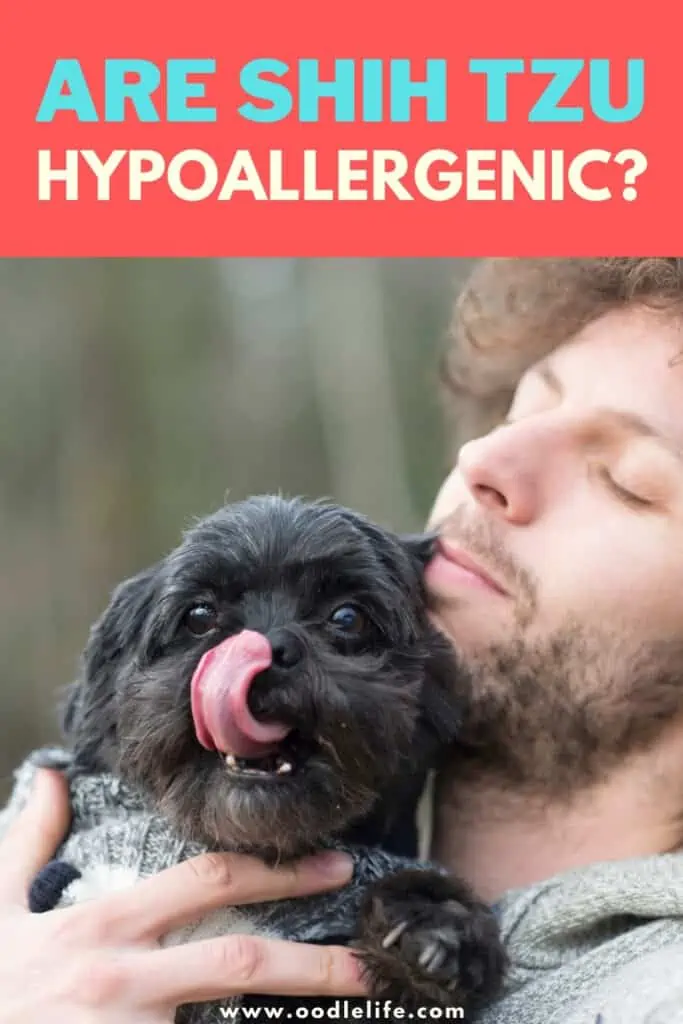
Luckily, hypoallergenic dog breeds are an excellent solution if you do. You may be considering the Shih Tzu breed, but are Shih Tzu hypoallergenic? Are they a good choice for people with allergies?
Today, we’re going to cover everything you need to know. We’ll take a close look at dog allergies, hypoallergenic breeds, and the Shih Tzu. Keep reading to learn more.
What Is a Hypoallergenic Dog Breed?
There’s a lot of talk these days about hypoallergenic dog breeds. You’ve probably heard people talk about Poodles being hypoallergenic. But what does that mean?
In the cosmetic world, hypoallergenic refers to anything that is less likely to trigger an allergic reaction. The term often applies to makeup labels, cleansers, and deodorants.
We also use it to talk about dog breeds that are less likely to cause an allergic reaction than others. These breeds share a few characteristics that make them allergy-friendly:
- Don’t shed. Non-shedding coats produce less dander.
- Don’t have hair. Without hair, it’s less likely that the dog has dander.
- Do have short, single-layer coats. Because there is no undercoat that sheds, there is no dander coming from the dog.
As you can see, the common theme is dander. What most people don’t realize is that dander causes allergies, not the dog’s hair or fur. If a pooch has a thick coat and sheds constantly, there’s going to be dander hanging around the house.
And allergies are likely to go crazy because of it.
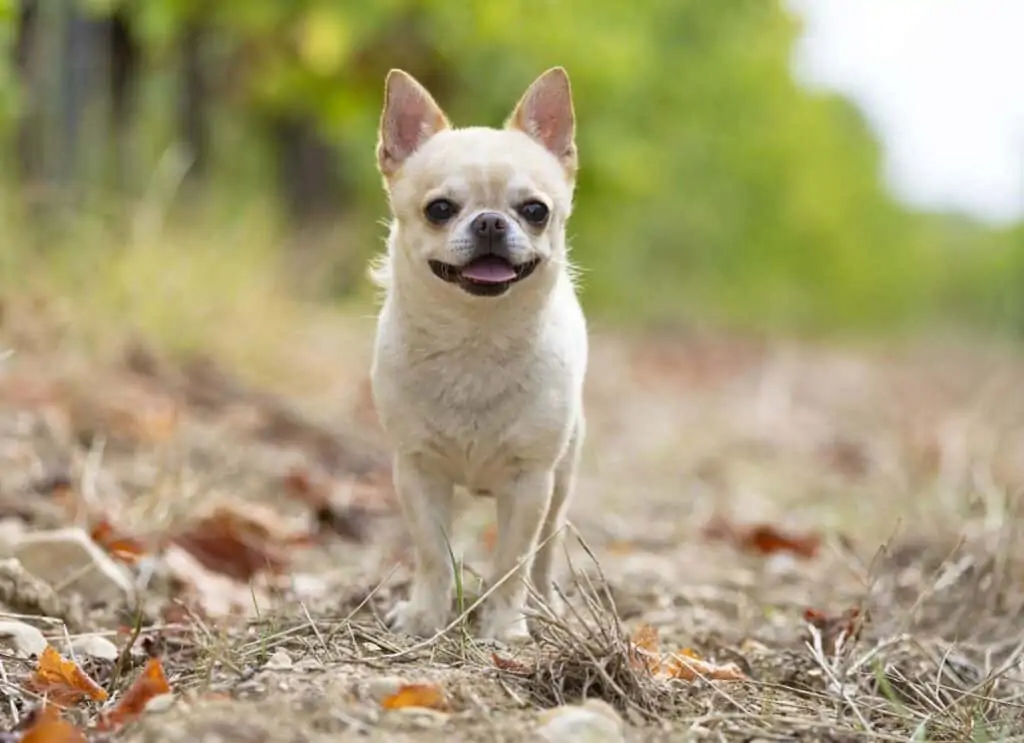
Are Shih Tzu Hypoallergenic?
So, do Shih Tzus meet the definition of a hypoallergenic dog?
Yes, they do. Shih Tzus shed less than other breeds and grow almost human-like hair rather than fur. This hair produces less dander, so your allergies are less likely to act up.
Plus, Shih Tzus are a small breed, so the percentage of dander they give off is less than larger dogs.
However, it’s critical to note that no dog is truly hypoallergenic. All canines produce dander to some extent, so even allergy-friendly dogs may not be ideal for people with extreme sensitivities. You may even find that individual dogs aggravate your allergies more than others.

What Are the Symptoms of Dog Allergies?
Sometimes it can be hard to figure out if you’re truly allergic to dogs. Though symptoms vary from person to person, here is what you should look out for:
- Skin rash. Dog allergies often produce a red skin rash, which might be accompanied by hives (small, raised red bumps).
- Runny nose and sneezing. These two symptoms are some of the most common ones, though it can be easy to mistake them for seasonal allergies.
- Nasal congestion. If you are congested at home and feel better when you’re outside, there is some allergen in your house. It might be dust, but your dog could also be causing your nasal congestion.
- Itchy, watery eyes. Having itchy, watery eyes is another common allergy symptom. It means our body is trying to get rid of some irritants.
The best way to find out for sure is to visit an allergist. An allergist will perform a skin prick test to diagnose you.
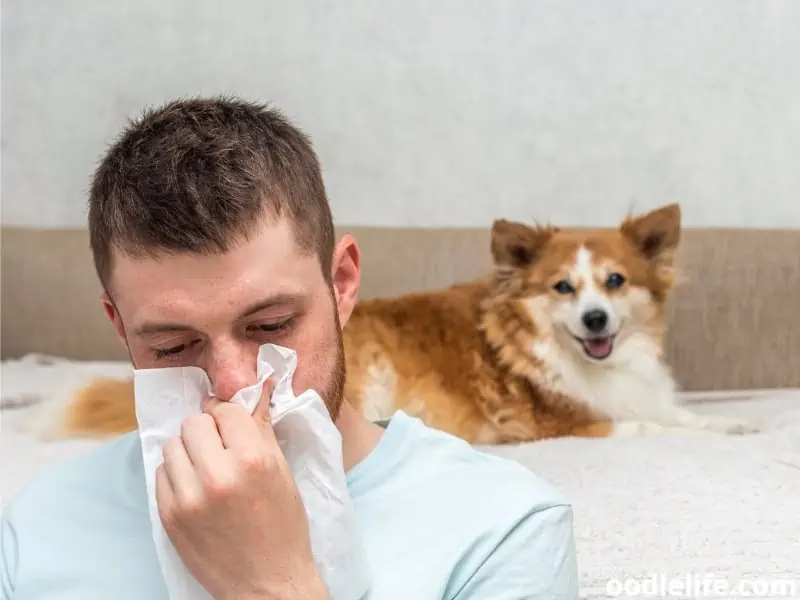
Tips for Reducing Allergies With a Shih Tzu
Even a Shih Tzu can still cause allergic reactions in some people. Here are some tips to keep yours under control.
Spend Time With Your Potential Shih Tzu
The first and most critical tip is to spend time with the dog you’re considering—before you take them home. Doing so will help you determine if your new furry friend could set off your allergies.
You can get one-on-one time whether your dog comes from a breeder or a shelter. Reputable breeders should let you return the dog if your allergies flare up (though be sure to check before committing). And most shelters let you spend plenty of time with the pup before taking them home.

Groom Your Shih Tzu Regularly
We know that dander sets off allergies, which is why you should control your Shih Tzu’s dander. The best way to do so is with regular grooming sessions. Avoid doing the grooming if you are the one with the allergy.
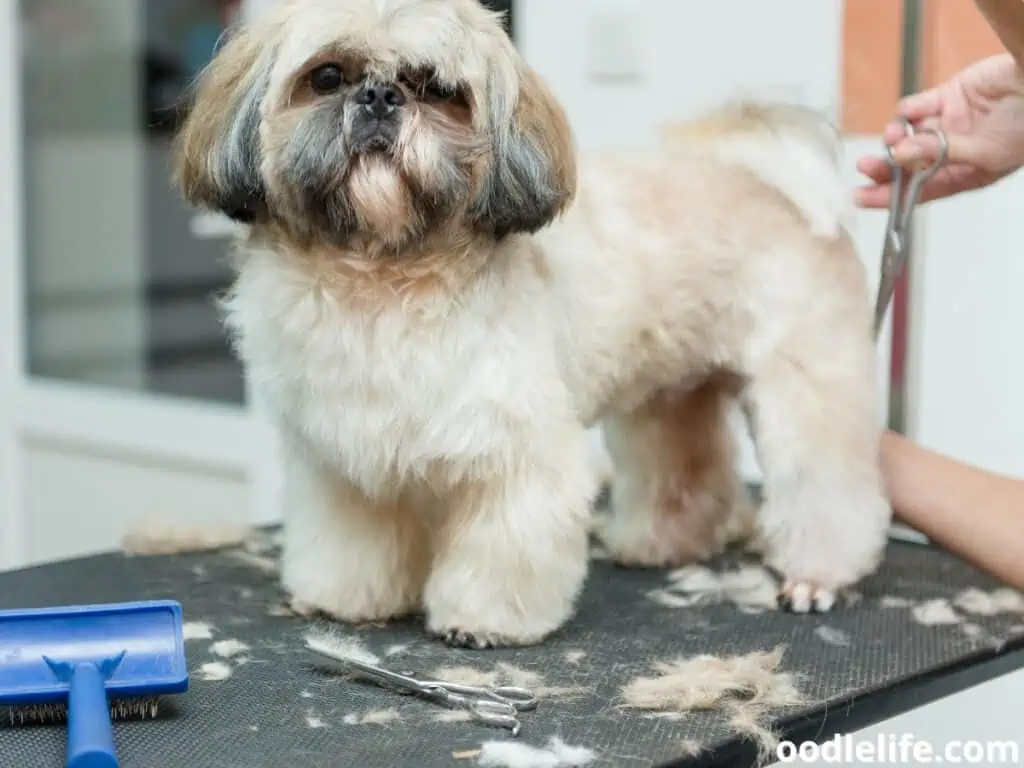
Bathe Your Pup
Skincare is essential for Shih Tzus, who are prone to having dry skin. Dry skin can cause your dog to scratch excessively, releasing dander into the air. To keep their skin healthy, use a natural, moisturizing shampoo and follow it up with a hydrating conditioner.
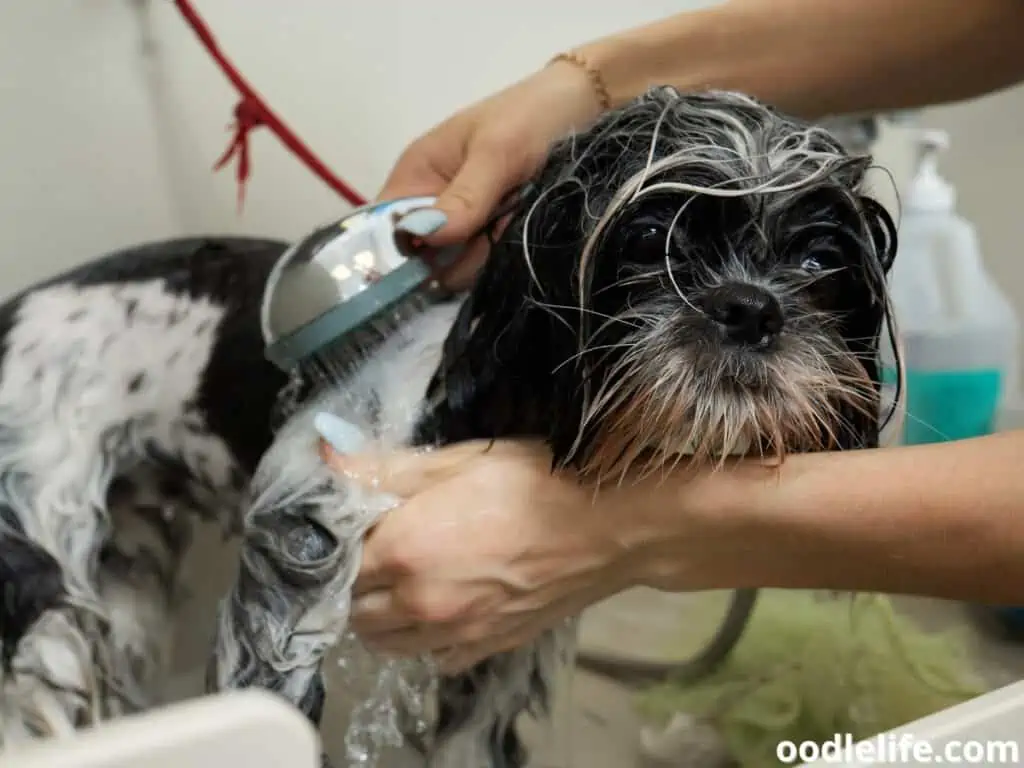
Vacuum Regularly
Pet dander settles on the floor and builds up in spaces where a Shih Tzu spends a lot of time. Vacuuming regularly helps keep this dander from piling up, though you’ll need to use a HEPA filter to stop the contaminants from blowing around the house. Bear in mind that some people find daily vacuuming necessary to keep things under control.

Wash Soft Surfaces
While doing laundry is rarely ever a fun task, it can help make your house a more allergy-friendly place. Focus on the soft surfaces that your Shih Tzu frequents. For example, if they have a dog bed, it’s vital to wash it often. Dog beds will quickly fill with dander, and all it takes is the slightest knock to send it around a room.
Similarly, if your dog likes to lay on a particular rug or floor mat, be sure to throw those items in the wash regularly.
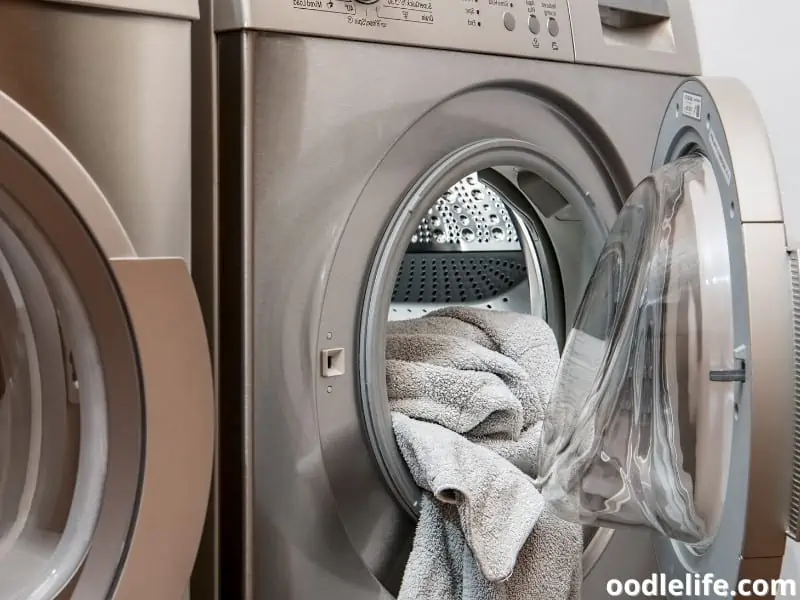
Make Your Room a Dog-Free Zone
This tip is perhaps the hardest for some people to follow through with, but it can make all the difference. Sure, you might want to snuggle up with your dog in bed. However, that habit can wreak havoc on your allergies.
You’re not just getting cozy with your dog—you’re also getting cozy with all its dander.
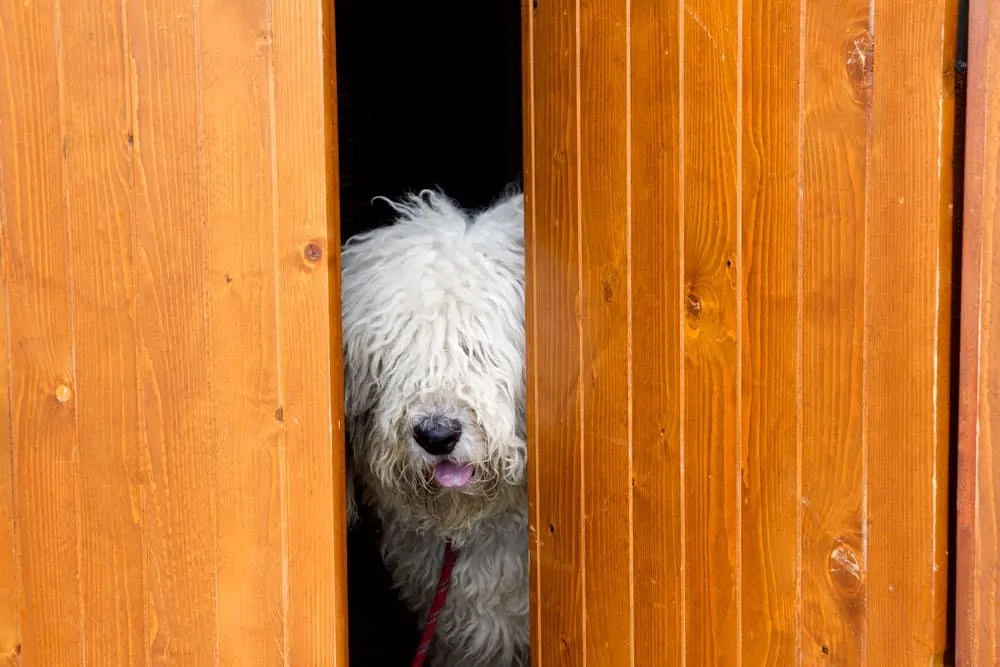
Take Allergy Medication
Sometimes, despite diligent cleaning and grooming, you may find that your Shih Tzu still aggravates your allergies. If you want to keep your dog in the home, you’ll likely need allergy medication to get relief.
Luckily, several over-the-counter options can help you. Some of these include:
- Antihistamines, allergy-relieving medications to reduce runny nose, sneezing, and congestion. They are available in many different forms: tablets, eye drops, nasal sprays, and more.
- Nasal decongestants to reduce swelling and congestion
- Nasal corticosteroids, anti-inflammatory medicines you spray or inhale
- Immunotherapy, also known as allergy shots, stops or reduces allergy attacks
Other Hypoallergenic Dog Breeds
If you think a Shih Tzu may not be right for you, several other dog breeds are suitable for people with allergies. Some of these include:
- Poodles and Poodle hybrids, including Goldendoodles, Labradoodles, and Cavapoos
- Schnauzers
- Bichon Frise
- Irish Water Spaniels
- Maltese
- Portuguese Water Dogs
Final Thoughts
So, now you have the answer to the question, “Are Shih Tzu hypoallergenic?” Unfortunately, there is no such thing as a truly hypoallergenic dog, although some breeds are better than others if you have allergies. Shih Tzus are indeed one of those breeds. If you suffer from allergies, a Shih Tzu may be right for you.